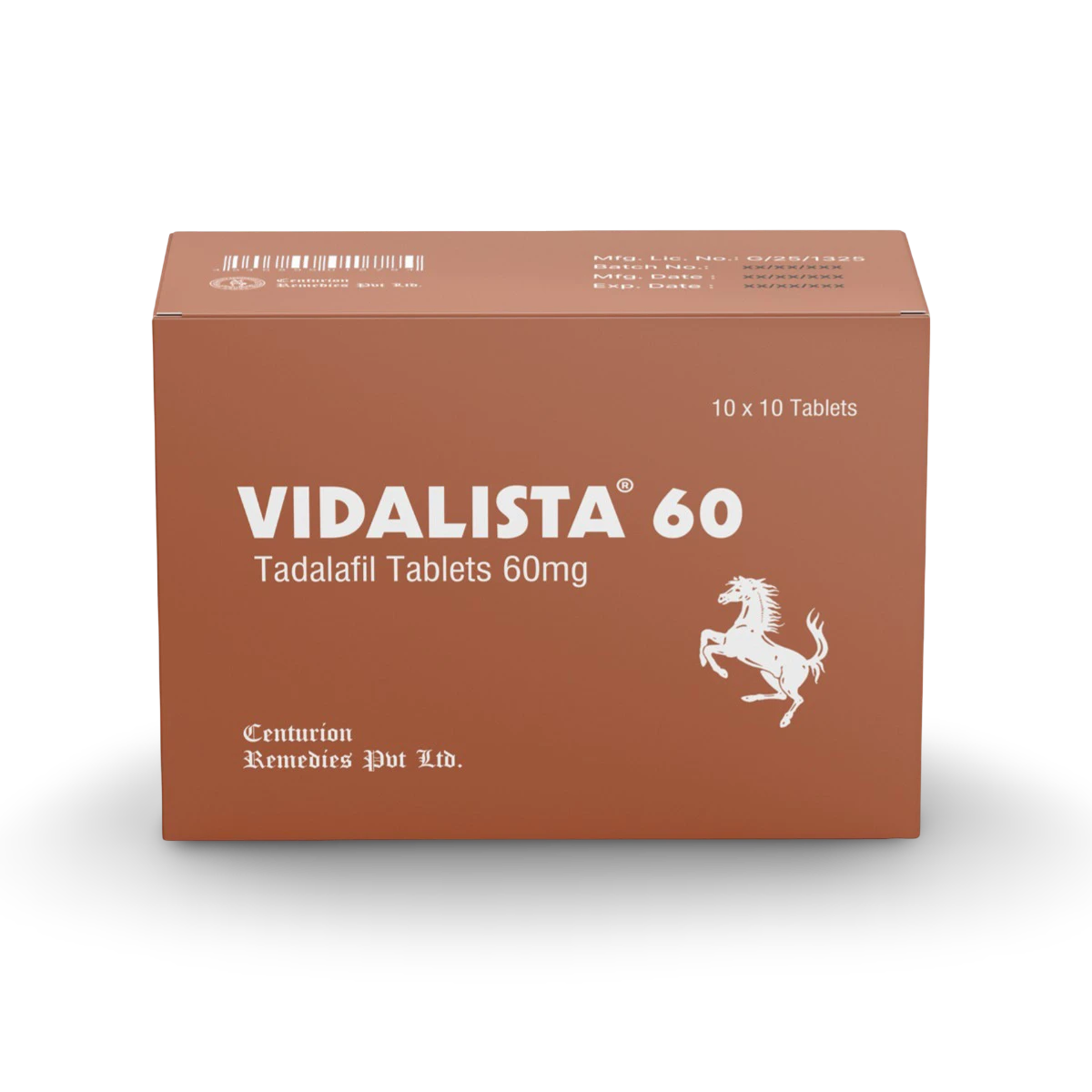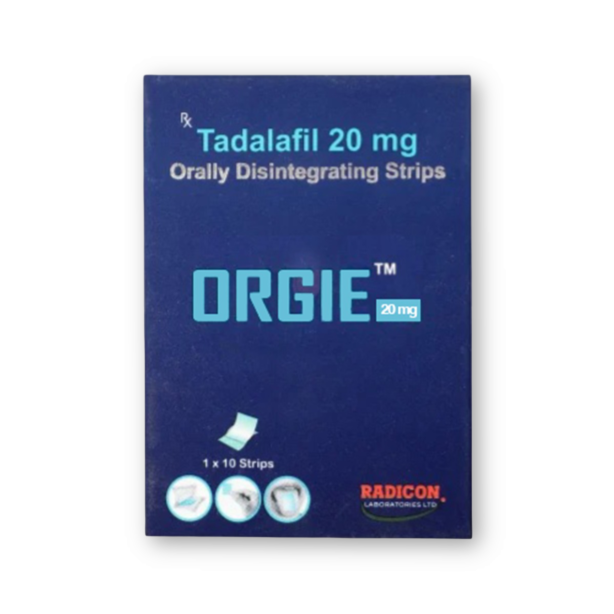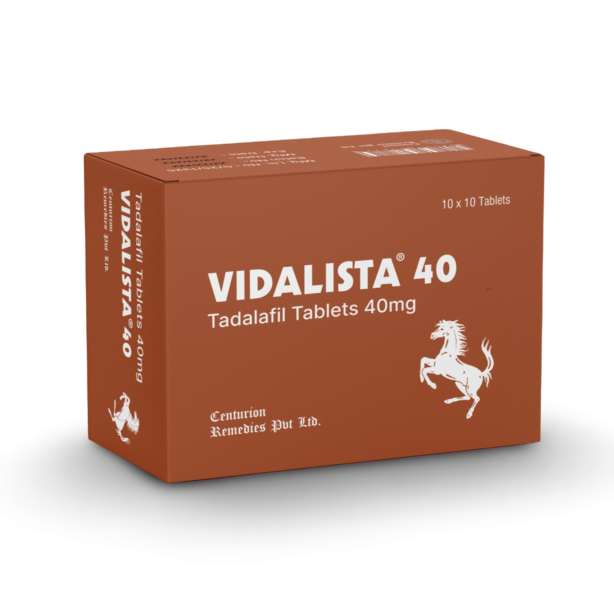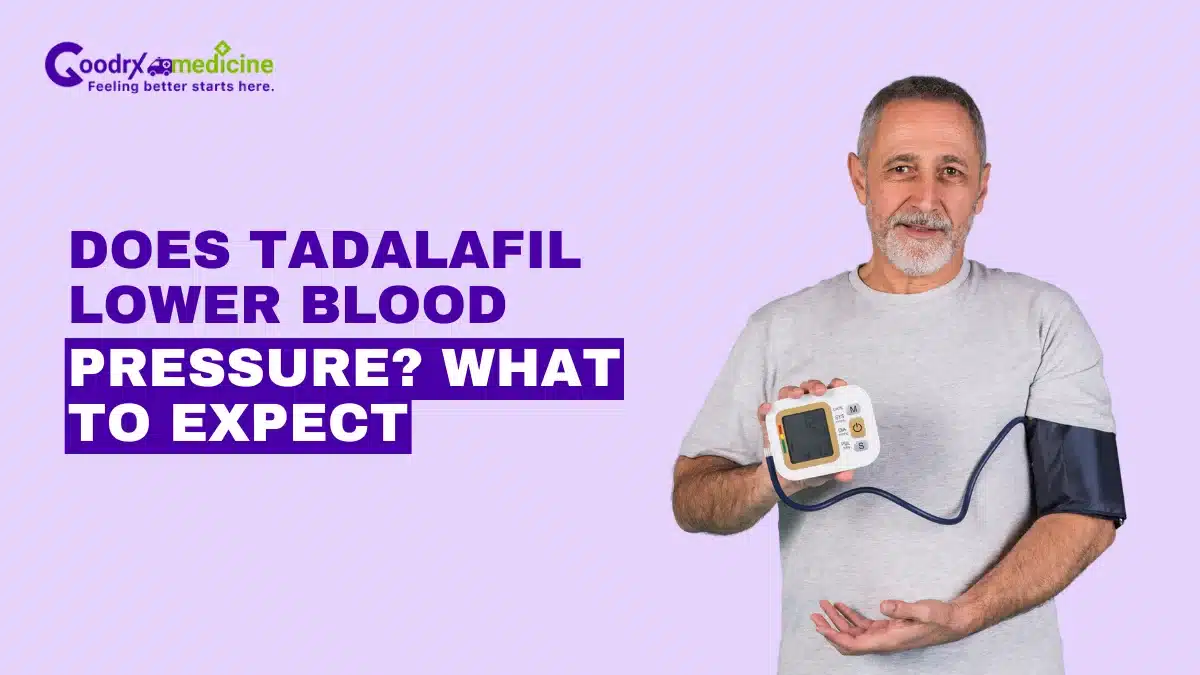If you’ve been prescribed Tadalafil for Erectile Dysfunction (ED) or certain lung conditions, you may have wondered, “Does Tadalafil lower blood pressure?” It’s a valid question that deserves a closer look, as the connection between this medication and your cardiovascular system is not as straightforward as it sounds.
While it influences blood pressure, it works within the body with a more complex mechanism. This popular medication works by relaxing blood vessels throughout your body, which can affect your blood pressure differently.
Whether you’re already managing High Blood Pressure or have normal readings, knowing how Tadalafil interacts with your cardiovascular system is essential for your safety. Read on to learn everything you need to know about this medication’s effects.
Can Tadalafil lower blood pressure?
Yes, Tadalafil can lower blood pressure, but usually in a mild and manageable way. It belongs to a group of medications known as PDE5 (Phosphodiesterase type 5) inhibitors. These medications, like Tadalafil, help relax and widen blood vessels, improving blood flow.
Tadalafil works by blocking the enzyme Phosphodiesterase 5, which breaks down cyclic Guanosine Monophosphate or cGMP, a chemical that keeps blood vessels dilated. By preserving cGMP levels, Tadalafil allows blood vessels to stay relaxed longer, which can naturally lower blood pressure.
Here’s how it affects your body:
- Blood vessels relax and widen
- Blood flows more freely
- The heart pumps more efficiently
- Blood pressure gently decreases
A study published in the British Journal of Clinical Pharmacology (2006) found that a single 20 mg dose of Tadalafil led to a small but significant reduction in 24-hour ambulatory blood pressure (a continuous BP measurement throughout the day). In healthy participants, systolic and diastolic readings dropped by about 4.8 mmHg and 2.9 mmHg, respectively.
Even more encouraging results were seen in patients with uncontrolled Hypertension already taking other medications. For them, Tadalafil helped further reduce blood pressure, suggesting it may offer added cardiovascular benefits when used alongside conventional antihypertensives.
Read More: From ED Treatment to Beyond: What Is Tadalafil Used For?
Save up to 90% on your medicine bills

Vidalista 60 mg

Orgie 20 mg Oral Strips

Vidalista 40 mg

Cenforce 100 mg
Safety considerations and monitoring
In cases where blood pressure falls below 90/50 mmHg, Tadalafil might not be safe. The medication can lower your blood pressure further, potentially causing fainting, dizziness, or more serious problems.
People who need extra caution include:
- Those who are dehydrated from illness or not drinking enough fluids.
- Patients with heart problems affecting the left side of their heart.
- People with nervous system disorders.
Your healthcare expert or doctor may monitor your blood pressure more frequently when you begin Tadalafil treatment or if there are any adjustments to your dosage.
Avoid dangerous drug combinations with Tadalafil, as specific interactions can pose serious health risks, including:
- Nitrate medications (like Nitroglycerin for chest pain)
- Nitric oxide donors
- Alpha-blocker medications
- Recreational drugs called poppers
These combinations can cause your blood pressure to drop so low that you could lose consciousness or even die.
Medications that need careful monitoring with Tadalafil:
- Blood pressure pills (ACE inhibitors, ARBs, diuretics)
- Heart rhythm medications
- Blood thinners like Warfarin
- Some antibiotics and antifungal medicines
Tadalafil is broken down by your liver using a specific pathway. Other medications that use the same path can either increase or decrease how much Tadalafil stays in your system.
Clinical evidence and long-term safety
Clinical trials have shown that Tadalafil’s effect on blood pressure remains mild and well-tolerated, even when used alongside one or more antihypertensive medications.
It is generally safe for individuals with stable cardiovascular conditions and does not significantly increase the risk of adverse events compared to placebo.
These findings suggest that Tadalafil does not significantly increase cardiovascular risk and is considered safe for individuals managing High Blood Pressure.
How to manage blood pressure while taking Tadalafil?
If you experience mild changes in blood pressure while taking Tadalafil, the following tips can help you stay safe and comfortable:
- Rise slowly from sitting or lying down: This helps reduce the risk of feeling dizzy or lightheadedness caused by sudden drops in your blood pressure.
- Stay well-hydrated: Drinking plenty of water supports healthy circulation and reduces the risk of sudden blood pressure fluctuations.
- Skip hot showers or baths immediately after taking Tadalafil: Heat can widen blood vessels further, compounding the medication’s effects and increasing the risk of lightheadedness.
- Monitor your blood pressure at home: If your doctor or healthcare provider advises, regularly monitoring your blood pressure can help detect any changes early.
Always consult your healthcare expert if your blood pressure symptoms persist or worsen, and never make adjustments to your dose without medical guidance.
When to seek medical advice
While Tadalafil is generally safe when taken as prescribed, specific symptoms may signal a need for urgent medical attention. Seek medical help immediately if you experience:
- Severe dizziness or fainting
- Chest pain or pressure
- Shortness of breath
- Vision or hearing changes
- A prolonged, painful erection (Priapism)
These symptoms may indicate a severe reaction or complications related to blood pressure or cardiovascular health. Early medical guidance ensures your treatment remains safe, effective, and tailored to your health needs.

Conclusion
So, does Tadalafil lower blood pressure? Yes, but the reduction is typically moderate and varies depending on your health condition and other medications.
Tadalafil improves blood flow by relaxing and widening blood vessels, which naturally causes a mild to moderate drop in blood pressure. In healthy individuals, this effect is usually small and well-tolerated. However, in people with high blood pressure, especially those already on antihypertensive medications, the impact may be more noticeable and clinically beneficial.
That’s why it’s essential to consult your doctor before starting or changing your dose, especially if you have heart conditions, low blood pressure, or are taking blood pressure medications.
With proper guidance, Tadalafil can be a safe and effective option, not just for erectile dysfunction but also for supporting vascular health in some individuals. Regular monitoring and honest conversations with your healthcare provider will ensure you get the benefits while minimising risks.
Frequently Asked Questions
What should I do if I forget to take my blood pressure medication but remember my Tadalafil?
Don’t skip either medication without consulting your doctor first. Missing blood pressure medication can cause dangerous spikes, and missing Tadalafil affects your treatment. Contact your healthcare provider for guidance on managing missed doses safely.
Is it normal to feel dizzy for the first few days when starting Tadalafil?
Yes, mild dizziness during the first week is common as your body adjusts to the changes in blood pressure. However, severe dizziness, fainting, or persistent symptoms require immediate medical attention and possible dose adjustment.
Will drinking coffee or energy drinks affect how Tadalafil impacts my blood pressure?
Yes, Caffeine can temporarily raise blood pressure, potentially counteracting Tadalafil’s effects. However, this interaction is generally mild. Avoid excessive caffeine intake and discuss your typical consumption with your healthcare provider for personalised guidance.
How long should I wait between taking Tadalafil and checking my blood pressure?
Wait at least 2-3 hours after taking Tadalafil before checking blood pressure, as this is when peak effects occur. For daily dosing, check consistently to establish patterns your doctor can evaluate.
Can seasonal changes or weather affect how Tadalafil influences my blood pressure?
Yes, hot weather can enhance Tadalafil’s blood pressure-lowering effects due to natural vasodilation, while cold weather may reduce them. Stay hydrated during the heat, dress warmly in the cold, and inform your doctor about any seasonal symptom changes.
What happens if I need emergency surgery while taking Tadalafil regularly?
Inform all medical personnel about your Tadalafil use immediately, as it affects blood pressure during anaesthesia and surgery. The medication may need to be temporarily stopped, and your surgical team will monitor your cardiovascular status closely throughout the procedures.
When referencing outside resources, GoodrxMedicine always provides full citations. To learn more about the measures we use to maintain the quality of our content, please review our Content Information Policy.











